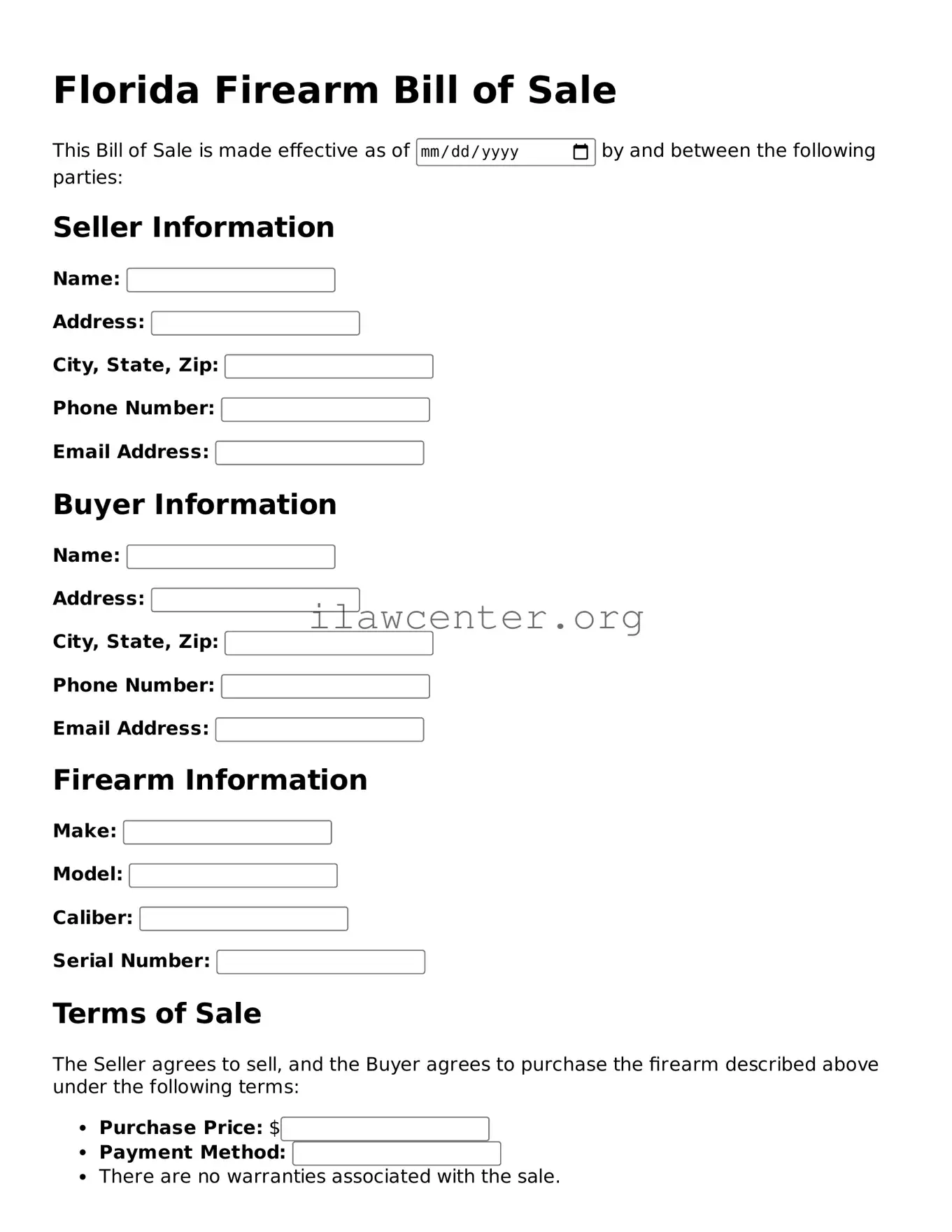What is a Florida Firearm Bill of Sale?
The Florida Firearm Bill of Sale is a document that serves as a legal record of the sale or transfer of a firearm between two parties. This form includes key information about both the buyer and the seller, such as their names, addresses, and contact details. Additionally, it outlines details about the firearm being sold, including its make, model, serial number, and any other pertinent information. Having a Bill of Sale can help protect both parties in the event of future disputes regarding ownership or liability.
Is a Firearm Bill of Sale required in Florida?
No, a Firearm Bill of Sale is not legally required in Florida. However, it is highly recommended for both the seller and the buyer. While Florida does not mandate documentation for private sales, a Bill of Sale can serve as a useful proof of transaction, demonstrating that the seller has relinquished ownership and that the buyer has legally obtained the firearm.
What information should be included in the Firearm Bill of Sale?
A comprehensive Firearm Bill of Sale should include several important details. This typically entails the full names and addresses of both the buyer and seller. It should also detail the firearm, including its make, model, type, and serial number. The date of the transaction is essential, and both parties may want to sign the document to provide validity. Including details about any additional accessories or items related to the firearm is also beneficial and can prevent future misunderstandings.
Can I use a Firearm Bill of Sale from another state in Florida?
While you can use a Bill of Sale from another state as a reference, it is advisable to use a Florida-specific Firearm Bill of Sale. Different states may have varying requirements or specific language that is most effective within their jurisdiction. Ensuring that the form meets Florida's criteria can provide clarity and avoid any potential legal issues regarding the sale.
Where can I find a Florida Firearm Bill of Sale form?
Florida Firearm Bill of Sale forms can be obtained from various sources. Many legal websites offer customizable templates that comply with state laws, which can be filled out online and printed. Additionally, gun shops and sporting goods stores may provide template forms in their facilities. It's important to ensure that any form used is current and aligns with Florida state regulations.
Does the buyer or seller keep the original Bill of Sale?
Typically, both the buyer and the seller should keep a copy of the Firearm Bill of Sale for their records. This practice helps both parties maintain proof of the transaction for future reference. Each party is encouraged to retain their copy in a safe place to ensure that they have documentation available should any need arise regarding the firearm's ownership.
